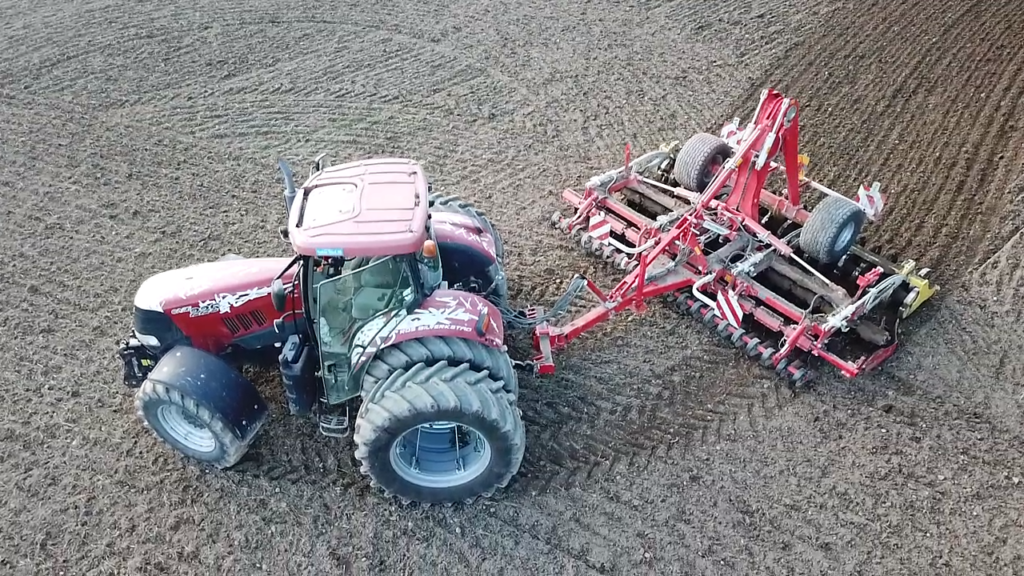One of the first biodynamic farms in Sweden, Yttereneby gård has been run as a bio-dynamic and organic dairy farm since the 1960s. Today, the tradition continues with farmer Holger van der Woude who is committed to maintaining a balance between crops and animals, and what the farm gives and receives as it interacts with the environment.
“It has always been important to me to be able to stand for what I do and work so that in the future, it will be possible to run agriculture sustainably,” says Holger.
Holger has known about the problem of eutrophication for a long time. It was one of the issues covered during his university studies, in a program focused on organic and biodynamic agriculture.
“Already then, I was fully determined to reduce my negative environmental impact as a farmer,” recalls Holger.

Yttereneby gård employs a number of measures to prevent nutrient runoff, while also supporting efforts to maintain a closed-loop ecosystem on the farm. No chemical fertilisers are used but instead, composted manure and straw are spread during low-risk periods. The farm practices minimum till- age and the soil is structurally limed, which helps to reduce surf water runoff of nutrients. All animal fodder is produced on the farm. The farm also maintains permanent grasslands, buffer zones, and a constructed wetland to absorb excess nutrients and encourage biodiversity.

The farm also participates in several external research projects. In one study with the Baltic Sea project BERAS (Building Ecological Regenerative Agriculture and Societies), it helped demonstrate that converting to circular farming can help reduce nitrogen and phosphorus leakage to the Baltic Sea. Measured nitrogen leakage from the farm’s fields was 7-9 kilograms of nitrogen per hectare, which is 70-75% lower compared to other agriculture in Sweden during the same time period. In a current project, the Biodynamic Research Center is studying how 15 years worth of accumulated sediments and nutrients in the farm ́s constructed wetland can best be emptied and recycled as nutrients on the fields.
It has always been important to me to be able to stand for what I do.
Holger is hopeful that his farm can continue to serve as a good example of sustainable agriculture. When asked how others have reacted to his successful efforts, Holger says: “It’s generally perceived as positive, but there is still a lot of work to do in terms of increasing society’s knowledge of what we actually do on the farm.”
In 2019, Holger van der Woude received the national Baltic Sea Farmer of the Year Award in recognition of his efforts to reduce nutrient runoff on his farm.
FARM FACTS
Location: Yttereneby in east Sweden
Type of farm: Organic and biodynamic crop and livestock farm (339 ha)
Main production: Milk, grass, and grains including oats and wheat
Key practices: Buffer zones, catch crops, closed nutrient cycle, cover crops, constructed wetland, manure composting, manure management, minimum tilling, no chemical fertilizers or pesticides, permanent grass lands, structural liming of soil
National jury motivation: “Holger is receiving this award for developing a well planned and diversified agricultural enterprise with grass, grazing, and ecological production; and for implementing a range of measures to protect the Baltic Sea – all of which have been well documented. All fodder (100%) is produced on the farm. To reduce nutrient leakage, Holger does minimum tilling in the spring, and maintains protected zones and catch crops. He has also constructed a wetland. Additionally, Holger participates as a test farm and in knowledge building activities within the framework of the Association of Swedish Farmers, the County Board, the agricultural school, and the Baltic Sea project BERAS.”

